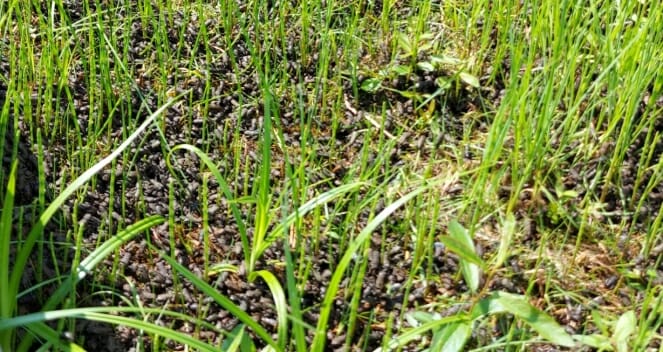Lost Lake Access Road and parking lot to close for approximately two weeks
The parking lot and access road at Lost Lake Park will close on Saturday, August 20 as tens of thousands of tiny Western “toadlets” begin their annual migration.
Western toads are a species of conservation concern because they are vulnerable to changes in their environment. The annual closures, protect the toads during their migration from the shores of Lost Lake into the surrounding forest.
“Because of the sensitivity of this species, it is important we strike the right balance between access to our parks and acting as environmental stewards for our unique habitat. We have made infrastructure investments that support this balanced approach, while also ensuring that opportunities for resident and guest education is front and centre,” says Jessie Gresley-Jones, General Manager of Resort Experience.
Visitors have multiple ways to access the park, including the:
- Valley Trail and Lost Lake Loop Trail, by foot or bike
- Lost Lake Park Free Shuttle program
- free Whistler Bike Valet
The Lost Lake Park free shuttle drops off 400 metres from the beach on Blackcomb Way, remaining on its usual schedule, and the Whistler Bike Valet is available on planned dates. Lost Lake beach, lawn areas, docks and surrounding trails remain open, and the Park Eats food truck program will continue daily.
Signs and gates are set up to ask visitors to step carefully and walk bikes as the Western toads are easily crushed under foot. Visitors are also asked to avoid touching the toads and tadpoles because this can damage their sensitive skin.
The RMOW operates a biomonitoring program focused on indicator species, which provides insight into the greater health of Whistler’s ecosystem. Lost Lake’s Western toad population has been monitored since 2005 as part of this study.
Visitors can learn more about Western Toads from naturalists and Resort Municipality of Whistler (RMOW) Environmental Technicians, who will be on site to monitor the migration. Information on when closures end can also be found on whistler.ca/toads.
In recent years, the RMOW has invested in infrastructure improvements to facilitate toad migration through the park areas, while ensuring this popular destination park can still be used by visitors. Toad underpasses follow preferred migration routes run under the Valley Trail, behind the events lawn, and the Lost Lake Loop Trail, between the Lost Lake Beach and Barking Bay. In addition to underpasses, the RMOW will install a log retaining wall along Lost Lake beach to discourage toads from migrating onto lawn areas where historically higher rates of mortality have occurred.
This year 134 breeding pairs of Western toads were observed in Lost Lake. Each female lays an average of 12,000 eggs, resulting in the emergence of hundreds of thousands of tadpoles, which group together forming large black clouds along the shoreline of Lost Lake. By July and August, tadpoles have metamorphosed into tiny toadlets and are ready for the great migration from lake to forest. This migration can often appear as a moving carpet as tens of thousands of dime-sized toads make their way across Lost Lake Park.For more information and updates on Lost Lake closures visit: whistler.ca/toads.

